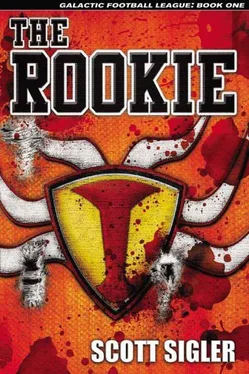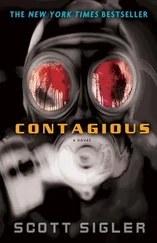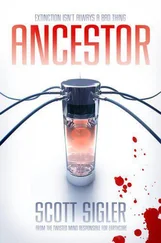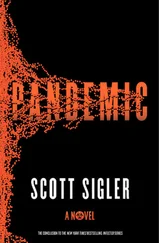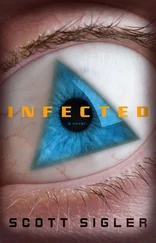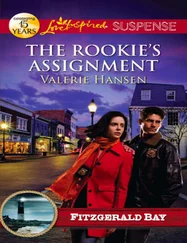Quentin raised an eyebrow. “You sound like you actually fought here or something.”
“I did,” Virak said. “I was born here. “When my time came, I fought not for new breeding grounds, but for defense of my birth-home.”
Virak absently brushed a pedipalp hand across a long list of short, alien words etched into the chitin of his right arm.
“What are those?” Quentin asked, gesturing to the writing.
“Names of Warriors in my fighting pack. Warriors I had lived with most of my life. They died in the battles. I lost everyone in my fighting pack, but the Creterakians paid a terrible price for their assault.”
“How many died?”
“Over two million Quyth,” Virak said. “Including all my family. We estimate around 22 million Creterakians died trying to capture The Deuce. We kept rough count up to 10 million, but they just kept coming, and counting the dead was last on our list of needs.”
Quentin tried to imagine fighting an enemy without number that came in wave after wave after wave. “That many, and they never broke through?”
“They eventually created a beach head on Shaft Two and Shaft Four. We let them bring in troops and resources, then we used nuclear weapons to destroy those shafts before they could penetrate further. Eventually, technologists from Satirli 6 were brought in to engineer a way through the two miles that separated the surface from the living levels.”
“Did they get in?”
“Yes, several times. But we distributed tactical nuclear weapons throughout The Deuce. Citizens were under strict orders — at the first sign of a breakthrough, seal off their section and detonate.”
Quentin’s jaw dropped. “At first sign? But how long did it take to evacuate the sections before you nuked them?”
Virak looked back into space. “There was no evacuation. Citizens sealed their section, then detonated.”
“How many Quyth would that kill?”
Virak thought for a moment. “Depending on the section, anywhere from 150,000 to 250,000. It did not matter — as long as the Creterakians did not establish a beachhead on the living levels, from which they could re-supply and swarm through the entire station, any sacrifice was worth it.”
“But to kill a quarter-million of your own people…”
“It was necessary,” Virak said. “The Creterakians do not control us. Freedom isn’t free.”
Quentin tried to imagine even the most hard-core Holy Man pulling the trigger on a nuke that would take out not only him, but 250,000 of his people.
“We maintained maneuverability,” Virak said. “As big as it is, the whole station can enter punch-space. We moved towards the home planet, to help defend it. The three Orbital Stations are more than just ships, they are self-contained ecosystems with planetary-level manufacturing infrastructures and resources that are inexhaustible in the short-term. That meant we were moving three full war-factories to defend the homeworld. We left the Creterakians with one choice — completely destroy the orbital stations, exterminating all life, or fight the ships the stations produced for decades to come.”
“So why didn’t they blow up The Deuce and the others?”
“We don’t know,” Virak said. “Maybe they didn’t have the technology. Relativity bombs, like the Sklorno used on Whitok, would have completely destroyed The Deuce, but the Creterakians either do not have them or did not use them. It doesn’t matter anymore. We beat them back once, we’ll beat them back again. The Quyth protect their homelands.”
There was more than a hint of condescension in that comment. The Quyth, who despite their military presence were considered the galaxy’s poor cousin of intelligence, had resisted the swarming Creterakians when all the “superior” governments had surrendered. The fact that most of the Quyth planets were irradiated wastelands seemed irrelevant, at least to them.
The conversation faded away as the Touchback maneuvered towards a massive shaft, perhaps two miles wide. Rows of lights ran down the sides, disappearing into the depths, reminiscent of the mine shafts back home. Ships, large and small, flew in and out of the huge opening. As the Touchback approached, traffic faded to nothing — exit traffic ceased, and entry traffic hovered in place.
“Why is all the shipping stopped?”
“Because they clear everything out when a bus comes in,” Virak said. “They need to prevent possible terrorist attacks. If a ship even gets within a half mile of a team bus, it is destroyed.”
The Touchback descended the shaft, sinking like a pebble into a miles-deep, dark-water chasm. Large ships docked against greenish projections that jutted out from the walls up and down the length of the shaft. He saw thousands of small ships, but many larger ones as well: cargo tugs hauling long lines of hexagonal boxes, space liners sporting sleek lines, bulky freighters loading or unloading payload to haul to other systems, and something that Quentin had never seen — warships.
There were dozens of warships, big and small, bristling with bulky shield generators and the long, thin, unmistakable shapes of weapons. Quentin felt a shiver, thinking of the days when weapon-loaded ships like these had permeated the universe, fighting and killing more often than not.
The Touchback slowed, almost imperceptibly. A light jarring motion indicated they had docked.
[BEINGS ON FIRST SHUTTLE FLIGHT, MOVE TO THE LANDING BAY. FIRST SHUTTLE FLIGHT LEAVES IN FIFTEEN MINUTES.]
“You come with me,” Virak said.
“But I’m on the third flight.”
“I have more to show you,” Virak said. “You come with me.”
Quentin followed the muscular Quyth warrior from the viewing deck down to the landing bay. He boarded — a few of the veteran starters gave him a quick look, but most shrugged (or gave the respective alien equivalent of a shrug) and went back to whatever they had been doing. The shuttle slid out of the landing bay and descended the shaft.
The shuttle finally slipped past the bottom of the shaft and into a cavernous, dome-shaped space. Endless rails of the green crystal ran in curved arms along the dome shell up towards the two-mile wide shaft mouth, which was also ringed by a thick band of green. Ships, probably personal cars judging from their tiny dimensions, flew in every direction like a thick swarm of gnats.
The air looked crowded with vehicles, but not around the shuttle. Off the port side, he noticed a squat yellow and black ship, lethal-looking and bristling with weapons. It struck him as an artistic interpretation of a bumble-bee crossed with an automated factory robot. He didn’t know the reason for its rather un-aerodynamic shape, but there was no mistaking the ship was a fighter.
He watched the fighter out the window. It matched speed and altitude with the shuttle. Then he noticed another fighter, and another, also matching speed. He looked out windows on the other side, and saw many more. Dozens of mechanical bees formed a sort of protective sphere-web with the shuttle at its center.
The Deuce reminded Quentin of Ionath City and Port Whitok — a huge, dome-shaped city. Although this time the dome was twice as large, at least eight miles in diameter and over two miles high. There was no sprawling city playing away from the downtown — here bare rock marked the city’s edge. A winding river, at this height no more than a blue-green ribbon, ran through the center of the city, emanating from one domewall and disappearing into another on the far side.
This place did not have the fine radial symmetry of Ionath City. Rather, it spread outward from the center the way a bacteria colony might grow on a Petri dish: orderly but in a biological fashion, as if it had grown naturally without the guiding hand of a city engineer. Lights glowed from almost every building, adding to the city’s biological feel, as if it were a bioluminescent colonial organism in some deep ocean. Roads wound through the city with little more order than the meandering river.
Читать дальше
